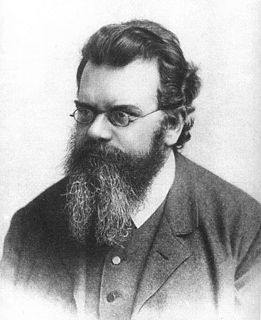A Quote by David Droga
To be honest, while every market is very different, we are all still fundamentally moved and inspired by similar human truths - love, fear, belonging, desire, and so on.
Related Quotes
So multifarious are the different classes of truths, and so multitudinous the truths in each class, that it may be undoubtingly affirmed that no man has yet lived who could so much as name all the different classes and subdivisions of truths, and far less anyone who was acquainted with all the truths belonging to any one class. What wonderful extent, what amazing variety, what collective magnificence! And if such be the number of truths pertaining to this tiny ball of earth, how must it be in the incomprehensible immensity!
It must be splendid to command millions of people in great national ventures, to lead a hundred thousand to victory in battle. But it seems to me greater still to discover fundamental truths in a very modest room with very modest means - truths that will still be foundations of human knowledge when the memory of these battles is painstakingly preserved only in the archives of the historian.
Belonging is the innate human desire to be part of something larger than us. Because this yearning is so primal, we often try to acquire it by fitting in and by seeking approval, which are not only hollow substitutes for belonging, but often barriers to it. Because true belonging only happens when we present our authentic, imperfect selves to the world, our sense of belonging can never be greater than our level of self-acceptance.
We have become this very fear-based culture, especially post-9/11. Fear is the opposite of love, in my opinion. I think there would be more love in the world. I'm not talking about rainbows and unicorns and '70s Coca-Cola commercials. I'm talking about gritty, dangerous, wild-eyed love. Radical acceptance of people. Belonging. A good, goofy kind of love.
Eliminate the concept of division by class, skills, race, income, and nationality. We are all equals with a common pulse to survive. Every human requires food and water. Every human has a dream and desire to be happy. Every human responds to love, suffering and pain. Every human bleeds the same color and occupies the same world. Let us recognize that we are all part of each other. We are all human. We are all one.
He who is a beginner on the way must not be brought to practise the commandments by kindness alone, but must more often be induced to continue the struggle by being rigorously reminded of God's judgment. In this way he will not only be moved by love to desire what is divine, but will be moved by fear to avoid what is evil. For 'I will sing to Thee, O Lord, of mercy and judgment' (Ps. 101:1 LXX). He will sing to God charmed by love, and steeled by fear he will have strength for the song.
What is required is the finding of that Immovable Point within one's self, which is not shaken by any of those tempests which the Buddhists call 'the eight karmic winds': 1-fear of pain, 2-desire for pleasure; 3-fear of loss; 4-desire for gain; 5-fear of blame, 6-desire for praise; 7-fear of disgrace; [and] 8-desire for fame.
Learning what it is to be among other human beings includes learning that they can be different from us as well as similar. We imagine what it would be like to experience the world differently from their locations, nor our own. We might still use analogies to understand others, but analogies point to similarities that co-exist with differences. Similar in some respects is consistent with different in other respects.
There are different kinds of truths for different kinds of people. There are truths appropriate for children; truths that are appropriate for students; truths that are appropriate for educated adults; and truths that are appropriate for highly educated adults, and the notion that there should be one set of truths available to everyone is a modern democratic fallacy. It doesn't work.
You write differently in each book. It may appear to be similar to readers, but you're a different writer in each book because you haven't approached that subject before. And every subject brings out a different prose strain in you. Fundamentally, yes, you're contained as one writer. But you have various voices. Like a good actor.


































